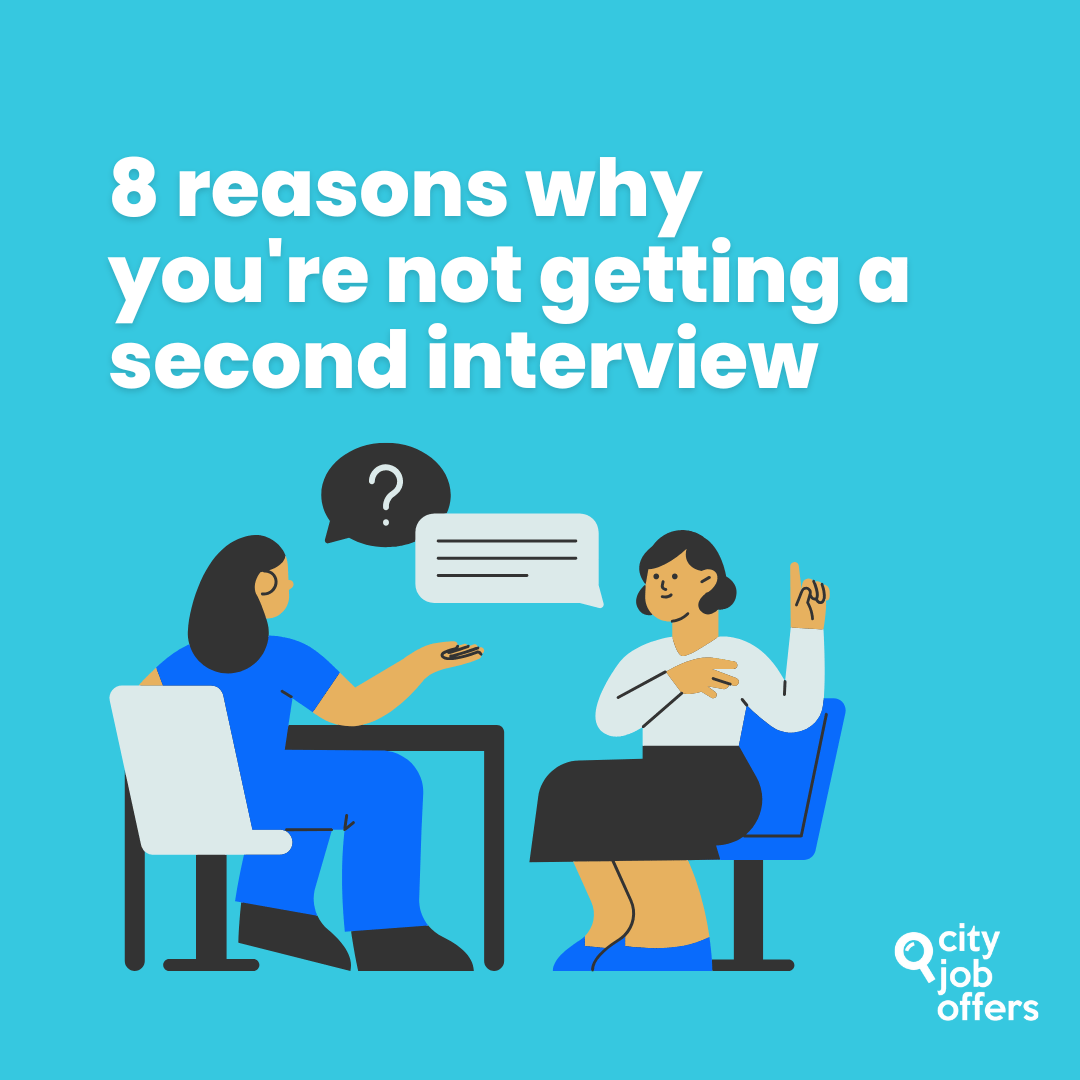
Why aren’t you getting a follow-up interview?
The job search can be stressful and you may even be the perfect candidate for a role but there are factors that could prevent you from getting a follow-up interview. Some can’t be controlled and you just have to adapt but others depend all on you.
So you made it past the first interview but you didn’t get a call for a second interview. What happened?
They already had someone in mind
This is a factor that you can’t control. You may be the ideal person for the role but the company might decide to go for an internal candidate.
The company is now looking for something different
Sometimes you do everything right, you fit the role, you had the right answers but they still don’t give you the job. Hiring managers tend to change their minds about what kind of candidate they need.
Throughout the recruitment process, they can figure out what they actually need which can lead them to start from scratch to find new potential candidates. It could also be due to budget issues that came out of the blue or maybe they decided they didn’t need the role anymore.
It’s not your fault that a job doesn’t exist anymore. These are things that you can’t control. Don’t worry, the right company for you is searching for you right now!
Didn't have the experience that they are looking for
You might meet the profile they’re looking for but the company might not want to take the time to give you training. You’re perfectly capable of doing the job but there was probably another candidate who was a better fit and could get straight to work.
Not a good cultural fit
You might be everything that a company is looking for in that you fit the role perfectly but if you don’t mix well with the culture of the company then it could be a big deal breaker for a recruiter. In the long run this is better for you, as working in a culture that doesn’t work for you will make you unhappy and won’t allow you to show your full potential.
Look into the company culture where you want to work from the information on their social media or website. Reading reviews about the company can also be very useful to see if it’s the right place for you.
You weren’t prepared
A job interview isn’t something that you can just do with no preparation beforehand. It’s important to practice with common interview questions. Research the company to better understand their values and prepare your own questions to ask. This shows that you’re actually interested.
Don’t forget to say the right company name, it’s a simple mistake but it’s better to avoid it. Prepare your story so you can articulate well but you don’t want to sound like a robot so make it natural. This will help you avoid going off-topic. Give clear, concise answers and avoid long-winded answers.
Being ready for an interview will make you feel more confident and you’ll give a better impression to a potential employer.
Problematic social media
Maybe your Instagram had some redflags or you posted some tweets that the company doesn’t want to be linked to. If you get the job, you’re going to be representing the business so avoid videos of drunk nights, explicit or controversial content, and anything that could give the company a bad image.
However, don’t delete your social media because employers like to be able to find you online. If they can’t find you then they might not ask for a second interview.
Your reference backfired
Use contacts that you trust and that know you quite well. If a reference isn’t going to improve your chances of getting the job, then it’s not worth it.
Didn’t follow up
This may seem insignificant but sending an email with a thank-you a few hours after an interview can help influence whether or not a candidate wants to hire you. Don’t be too aggressive, but show that you want to stay in touch with the company.
A survey conducted in 2017 by TopResume, showed that 68% of recruiters said that receiving a thank-you note from a candidate did influence their decision about whether or not to hire them.
In this thank-you note, it’s recommended that you reaffirm why you’d be the best candidate, highlighting your skills and thanking the recruiter for their time. Make there’s no grammatical or spelling errors and that all names are written correctly. These small errors could prevent you from getting a second interview.


.png?width=352&name=Did%20you%20know%20these%206%20ways%20to%20use%20your%20social%20media%20to%20get%20a%20job%20(Instagram%20Post).png)
.jpg?width=352&name=Did%20you%20know%20these%206%20ways%20to%20use%20your%20social%20media%20to%20get%20a%20job%20(Instagram%20Post).jpg)